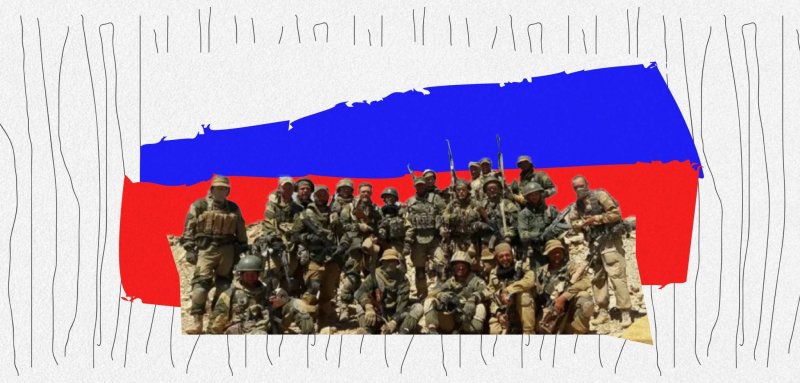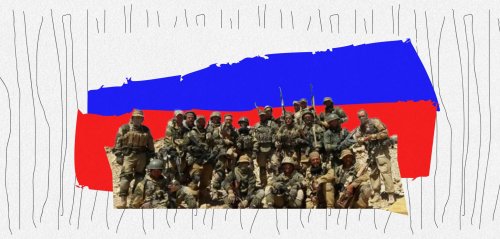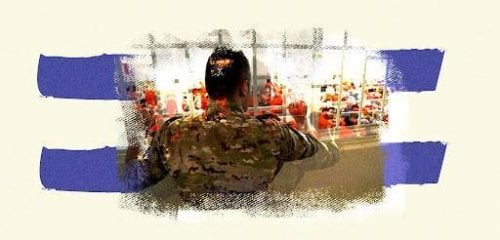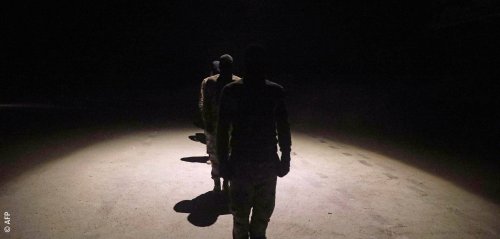The Russian Wagner paramilitary group made its intervention in Syria during the last quarter of 2015, coinciding with the entry of the Russian army into the battle lines, or shortly after, as corroborated by various other sources.
"Wagner" is a cluster of fighter groups often referred to as a private military company. Despite all the information that was leaked about their activities during the Crimean-Donbas battles in 2014 and 2015, their recent crisis and mutiny in June 2023, led by their leader Yevgeny Prigozhin, clearly demonstrated their defiance against the Russian leadership. This bold move saw them shifting their focus from the Bakhmut front in Ukraine towards major cities, the farthest being 200 kilometers away from Moscow, before halting due to interconnected considerations, leading to significant implications.
This has dispelled claims of Wagner having a direct affiliation with the Russian Ministry of Defense, dispelling the notion that they are merely a faction under the ministry's command. This was all emphasized by the public conflict between their leader and Russian Defense Minister Sergei Shoigu before the mutiny, with the group accusing the Ministry of Defense of shelling their forces and withholding ammunition and supplies on multiple occasions, leaving them to face the intense battles in Ukraine on their own.
In Syria for example, Wagner went beyond mere ground military participation. Once they consolidated their control, they took the bold step of recruiting Syrians and sending them to Libya
Despite the tensions, even Russia's staunchest critics couldn't have foreseen a coup in the form of mutiny against President Vladimir Putin and Shoigu, the Russian Defense Minister. But that is what happened.
Discussions about a group like Wagner differ from those concerning a squad, battalion, or even a renegade brigade that deviated from their battlefront allegiances. Rather, we are here talking about a fully integrated private military company equipped with heavy and sophisticated weaponry, including advanced tanks. Additionally, the group possesses substantial financial resources and operates across a wide geographical span, with key theaters including Ukraine, Syria, and several African countries, notably Libya. Each of these fronts holds distinct characteristics that motivate Wagner to maintain its presence and seek opportunities in oil-rich and volatile regions worldwide.
The recruitment of Syrian mercenaries
In Syria for example, Wagner went beyond mere ground military participation. Having gained control alongside government forces and other allies over extensive territories, they commenced the recruitment of young Syrian men for combat and guard duties in areas outside Syria. Initially deploying them to Libya, the group offered monthly salaries ranging from $700 to $2,000, depending on the assigned tasks. Some were tasked with guarding oil and gas fields, while others secured major highways and central areas. The highest-paid were those engaged in assault operations.
The military organization primarily targeted young men loyal to the cause, those who, due to life's circumstances, were compelled to accept any job, regardless of its risks. Later, they extended their reach to young men from settlement areas and regions that were not clearly aligned with the central Syrian state. Consequently, Libya became inundated with thousands of Syrians, many of whom returned home as casualties. Ironically, these individuals were mourned as "martyrs" by their families, despite those surrounding these 'martyrs' having no knowledge of how they were killed or why. And who were they fighting exactly? And what was the cause they were defending in Libya, a country riddled with confusion and conflict?
These fighters were typically sent by air through the Hmeimim military airport in the countryside of Latakia, which has been under Russian control since their entry into Syria. Before their deployment, they would need to obtain security approvals from the Syrian side, and occasionally, the Russians demanded that the fighter should not be a military defector in his own country, though this condition was often overlooked.
Under the contract system, they were obligated to serve in the destination country for five or six consecutive months, followed by one month of paid rest back in Syria. Afterwards, they would return to the airport to be sent back to their duty station (this became a standard contract for Wagner fighters, regardless of their destination).
According to well-informed sources speaking to Raseef22, there are currently "hundreds of Syrians fighting in Ukraine (regardless of the recent mutiny crisis), though it's currently difficult to ascertain the exact count. They are known as the "Tahat" group, named after their leader from the al-Tah family in Syria, who previously led an unorganized group that operated for the benefit of the Syrian army (known as the Popular Forces) and fought alongside it."
Breach of confidentiality
Marat Gabidullin, a former soldier in the Russian Wagner paramilitary group, made a bold decision to go public and disclose crucial information about the group's activities, behavior, and some of its well-kept secrets. By doing so, he is defying the strict and absolute rules of secrecy that govern the group's members, rules that are meticulously outlined in their "contracts", and it is widely believed that revealing them may have serious repercussions.
Marat went beyond conducting a mere press interview; he has announced his readiness to publish a book that delves deep into the intricate relationship between the Russian army, the Syrian forces, and Wagner. Initially, he had sent the manuscript to a printing press in Siberia, before suddenly announcing that he has recently retracted it and halted its printing. It is believed that this took place as a result of threats that targeted both him and his family.
The "Meduza" media network successfully managed to reach Marat and conduct the interview, during which he revealed that he joined the Wagner group in April 2015 and was subsequently deployed to Syria. There, he actively participated in their battles and steadily climbed the group's military ranks. However, after returning home with injuries, he began contemplating stepping away from it all and focusing on writing his memoirs.
In the interview, Marat expressed his desires, "I wanted to live the rest of my life to the fullest, but I also felt a compelling need to shed light on the truth about private military companies, and expose the elaborate deception perpetuated by both the army and politicians. People should be made aware of the reality hidden from them, a truth that the entire world knows but is concealed from the very citizens it concerns."
Ironically, many of the Syrian victims associated with Wagner have been mourned and buried as "martyrs" by their families, who have no knowledge of how their loved ones were killed or why. And who were they fighting exactly?
Numerous significant details emerged during the extensive interview with the former soldier, shedding light on the inner workings of Wagner and its leaders. One of the most striking revelations he made was how much Wagner's leader was subjected to persistent deception, involving the theft of his money and that of the group, the purchase of faulty military equipment, and other deceitful dealings. All of this was orchestrated by high-ranking officials within Wagner, along with the most prominent assistants of its leader, who obstinately resisted conducting any actual investigations out of pride.
Did Wagner kill Syrian soldiers?
In the interview, the ex-soldier made a serious allegation, one that might prove challenging to substantiate and could face denial elsewhere. He disclosed that some Wagner fighters engaged in the killing and execution of Syrian soldiers who did not take part in the battles, with these acts filmed and uploaded online for other Syrians to witness.
Raseef22 conducted a thorough search on social media and video-sharing platforms, with the assistance of a tech expert to find one of these videos, but regrettably, no definitive results were found. This could be attributed to the platforms' policies against promoting violence and bloodshed, or it's possible that the videos were removed earlier. Regardless, our advanced search on the web failed to locate them, which theoretically suggests their nonexistence.
The soldier also shared accounts of them plundering artifacts and antiquities from Palmyra during its recapture and how hospitals were inundated with injured and deceased Wagner fighters from the battles. Moreover, he spoke of the presence of foreign fighters, particularly of Serbian nationality, among the ranks of Wagner, and it was revealed that many of these foreign fighters had their salaries stolen by the leaders of their own groups.
After the mutiny
In the immediate hours after the Wagner mutiny in Russia, Syrian military leaders urgently summoned approximately 10 to 20 Wagner commanders from those stationed in Syria, according to what private sources affiliated with the Wagner file in Syria, told Raseef22.
These meetings aimed to discuss the events unfolding in Russia and the extent of their connections and communications in that context, as well as the sensitivity of the situation. The Syrian leadership reiterated their expectations from the Wagner commanders, urging them to avoid reckless actions, incitement, or the stoking of unrest. They were given the option to either sign direct contracts with the Russian Ministry of Defense or be directly airlifted to Moscow, all in conjunction with the strict control of communications around them to ensure things run smoothly and quietly.
Shortly after suppressing the rebellion in Russia, Russian Deputy Foreign Minister Sergey Vershinin hurried to Damascus with the intention of meeting Syrian President Bashar al-Assad. According to sources, the Russian request to the Syrian leadership was to prevent any Wagner leaders and personnel from leaving Syria without prior permission and supervision from Russia. This measure was implemented to allow time for arranging and addressing their situations within a new framework.
Furthermore, the Russian official clarified that Wagner would no longer operate independently in Syria or function as a private military company; instead, it would operate under the direct supervision of the Russian Ministry of Defense as an organized military component.
In 2018, the Wagner forces engaged in an unforeseen military operation where they unexpectedly faced the weight of the American forces operating in Syria and Iraq.
Wagner and America
In 2018, the Wagner forces engaged in an unforeseen military operation where they unexpectedly faced the weight of the American forces operating in Syria and Iraq. At that time, Wagner decided to block the route to the Koniko gas fields, which are under its control in Deir ez-Zor, extending eastward to the Iraqi borders. The objective was to thwart the advancement of the Syrian Democratic Forces near the field and secure control over the oil wells south of it, which were then under ISIS's grip. Wagner sought to secure this area in a future battle due to the significance of the oil wells.
The problem arose when the American forces held a small military outpost along the route between Koniko and the Iraqi border, prompting Wagner to intervene with its air force, causing a massacre with hundreds of Wagner soldiers killed and wounded.
Following the incident, the Pentagon reached out to the Russian Defense Minister to discuss the situation. The minister asserted that these forces were not under their command, as reported by the Wall Street Journal at that time. Official media sources attributed those nighttime clashes to what they called the "popular resistance in the Jazira."
An uncertain future
It can now be said that the group is in a current state of uncertainty and confusion in its work in Syria. Its leaders have been informed of various details, including how the sole trust of the fighters, who operated as "mercenaries", is in the rebellious Wagner leader. Complying with the Kremlin's decision to integrate them into the Russian army would mean losing their freedom and the brutal tactics they employed as individuals, while the leaders of the group seem to be more understanding and knowledgeable about the situation.
Given Putin's personality, it is unlikely that he will leave them be in Syria unless they pledge their loyalty. Time is running out for them to sign official contracts with the Russian Defense Ministry, and if they refuse, they risk facing punishment and being handed over to their country's government.
Certainly, the Syrian leadership is deeply affected by the events. They never wished for such a situation to arise, as Wagner wields significant influence and vast territories that it has controlled for years, amid fears of a possible ISIS resurgence in the desert looming on the horizon should the Russian fighters withdraw.
On the other hand, the Syrian leadership also fears the withdrawal of these fighters after they were organized outside Syria. This would allow Russia to maintain its overseeing role without getting involved in unnecessary tactical confrontations, given their ongoing entanglement in the Ukrainian "quagmire", and thus prioritizing other fronts.
Syria is pressuring Wagner to comply with what Putin wants. They are faced with two choices: either submit and fall under the Ministry of Defense, which means losing their freedom, or they refuse to comply and return to their country to face an uncertain fate
In the grand scheme of things, whether Wagner leaves Syria or remains organized there, it won't result in the return of Syrian oil wells to the country. This is due to the cooperative nature of the arrangement, where Russia remains the dominant force, utilizing Wagner as an auxiliary operational framework that shares it with it.
Simultaneously, integrating Wagner into the Ministry of Defense would mean sacrificing their initiative on the ground and subjecting themselves to various laws, rules, responsibilities, hierarchy, and routines. Such a situation is not what Syria desires for its battles, in which it has long relied on unofficial fighters capable of causing significant harm or disruption at any given time.
Perhaps what is most important is that Wagner did not rebel in Syria. Merely leaving their positions without firing a single shot could have caused an upheaval in the entire state, and turn the tables on everyone. Not because of any lack of strength or stability on their part, but because the main leader of Wagner has done a great favor to Putin and his allies, in his lack of resourcefulness, planning and political impotence before the more skilled Putin, Shoigu, and their associates.
Raseef22 is a not for profit entity. Our focus is on quality journalism. Every contribution to the NasRaseef membership goes directly towards journalism production. We stand independent, not accepting corporate sponsorships, sponsored content or political funding.
Support our mission to keep Raseef22 available to all readers by clicking here!
Interested in writing with us? Check our pitch process here!







